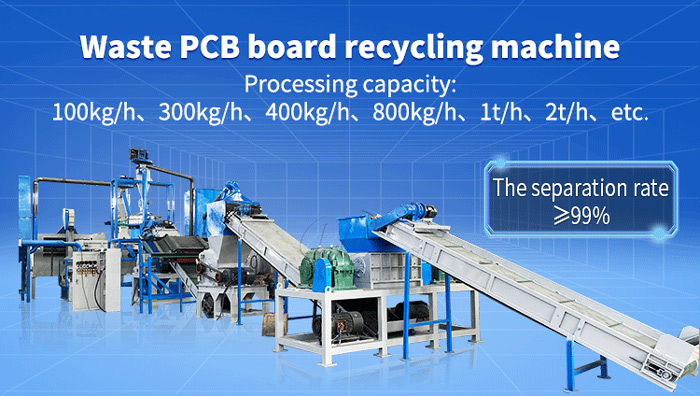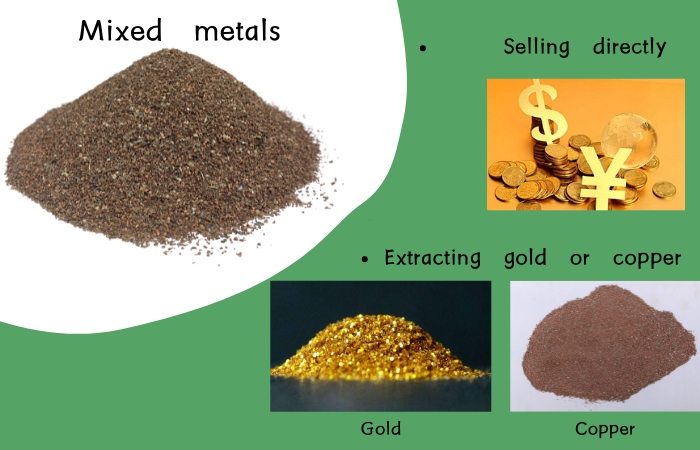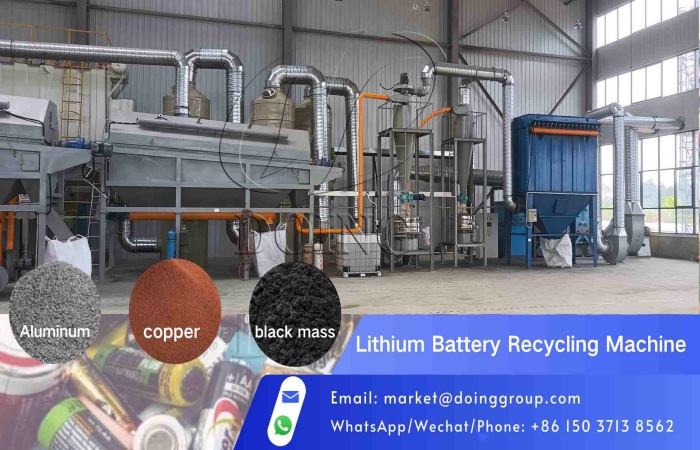 National High-Tech Enterprise
National High-Tech Enterprise
 WhatsApp
WhatsApp
 Pyrolysis Plant For Sale from TOP Manufacturer
Pyrolysis Plant For Sale from TOP Manufacturer
 National High-Tech Enterprise
National High-Tech Enterprise

 April 3, 2025
April 3, 2025With the rapid growth of electronic waste, e-waste recycling has become key to recover precious metals and reduce environmental harm. Electronic waste, or e-waste, contains a variety of valuable and sometimes rare metals that can be recovered through proper recycling processes. These metals are essential components in the manufacturing of electronic devices.
Copper is a common metal that is found in large quantities in cables, printed circuit boards (PCBs), and various electronic components due to its high electrical conductivity. Aluminum is commonly used in device housings, cooling systems, and certain electronic components due to its light weight and good thermal conductivity.
At DOING Group, we specialize in e-waste recycling machines that efficiently extract these metals from e-waste. DOING circuit board recycling machine is an e-waste recycling machinery that recycles various waste circuit boards to obtain metal and resin powder. The whole process uses physical crushing and sorting methods to separate metals from waste circuit boards, include shredding, crushing, magnetic separation and iron removal, screening, specific gravity separation and electrostatic separation. The final metal recovery rate can be as high as 99%.
 DOING circuit board recycling machine for metals recycling from PCB e-waste
DOING circuit board recycling machine for metals recycling from PCB e-waste
In addition, waste lithium batteries also contain precious metal materials copper and aluminum. The lithium battery recycling plant manufactured by DOING can extract copper and aluminum from e-waste lithium batteries through physical separation methods. The equipment separates copper and aluminum from waste lithium batteries through processes such as shredding, crushing, magnetic separation, screening, and gravity separation. The final product also contains valuable graphite powder.
Gold is commonly used in circuit boards, connectors, and other electronic components because of its excellent conductivity and corrosion resistance. Silver, which has excellent conductivity, is often used in solder, electrical contacts, and sometimes in small amounts on circuit boards.
 Metals recovered from e-waste
Metals recovered from e-waste
Platinum (Pt) and palladium (Pd) are rare metals. Though less common, these metals can be found in certain types of electronic devices, including computer hard drives and mobile phones, where they serve as catalysts or in resistors.
In addition, some rare earth metals can be recovered from electronic waste, such as neodymium, europium and yttrium, which are critical in the production of high-performance magnets, phosphors in display screens, and other specialized applications (e.g., EVs, wind turbines).
The above are some of the products that can be recycled by e-waste recycling. However, there are many types of electronic waste, including lithium batteries, cables and wires, various circuit boards, etc. Different raw materials have different extracted products and specific gravity. In order to achieve better e-waste recycling results, Henan DOING company has specially developed different equipment product series.
 DOING lithium battery recycling plant to recover metals from e-waste
DOING lithium battery recycling plant to recover metals from e-waste
DOING's e-waste recycling machines maximize metal recovery through advanced technology. Our e-waste recycling equipment includes:
PCB recycling machines: For metal and resin powder extraction.
Lithium battery recycling plants: To recover copper, aluminum and graphite powder.
Cable wire granulators: For high-purity copper and aluminum separation.
No matter what specific type of e-waste recycling business you want to start, with over 95% metal recovery rate and environmentally friendly processing capabilities, DOING e-waste recycling machines help turn e-waste into profit. Welcome to contact us and tell us the e-waste materials and scale you want to process. DOING provides you with a series of services such as equipment consulting, manufacturing, equipment installation, etc.
Please feel free to leave your contacts here and your privacy is protected. A competitive quotation will be provided according to your detailed requirement within one business day.